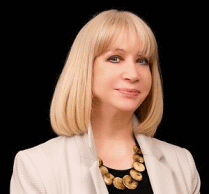Counselling or Psychotherapy?
‘Counselling and psychotherapy are umbrella terms that cover a range of talking therapies. They are delivered by trained practitioners who work with people over a short or long-term to help them bring about effective change or enhance their wellbeing.’ (BACP, 2015)
Counselling offers the opportunity to explore specific aspects of current difficulties. Counselling tends to be short-term (up to 6 sessions).
Psychotherapy addresses more deep-seated concerns. Many people who seek psychotherapy are interested in finding out about themselves in order to improve present relationships and live a more rewarding life (6 to 12 sessions).
Psychodynamic Psychotherapy derives from psychoanalysis. Clients are able to explore the effect of the past onto the present (long-term, open-ended).
Integrative Counselling brings together different elements of specific therapies.
Therapeutic Coaching combines counselling and life coaching for short-term, solution focused work (up to 6 sessions).
Multilingual Counselling for English, French, Spanish and Portuguese clients.
What Conditions Can it Help?
Addiction(s), ADHD, Affairs and betrayals, Alcoholism, Anger management, Anorexia nervosa, Antisocial personality disorder
Anxiety, Attachment disorder, Attachment disorder in children, Avoidant personality disorder, Behaviour problems,
Bereavement, Binge-eating disorder, Bipolar disorder/Manic depression, Body dysmorphic disorder, Borderline personality
disorder, Bulimia nervosa, Bullying, Cancer, Career, Carer support, Child related issues, Childhood bereavement,
Chronic fatigue syndrome/ME, Dependent personality disorder, Depression,
Disabilities, Discrimination, Dissociation, Domestic violence, Drug abuse, Eating disorders, Feeling sad, Gambling, Gender
dysphoria, Generalised anxiety disorder, Hearing voices, Histrionic personality disorder, HIV/AIDS, Hoarding, Internet
addiction, Learning difficulties, Loneliness, Low self-confidence, Low self-esteem, Miscarriage, Narcissistic personality disorder
Obsessive compulsive disorder (OCD), Obsessive-compulsive personality disorder, Panic disorder, Paranoid personality disorder,
Passive aggressive behaviour, Personality disorders, Phobias, Post-traumatic stress disorder (PTSD), Postnatal depression,
Psychosis, Redundancy, Relationship issues, Schizophrenia, Schizotypal personality disorder, Seasonal affective disorder (SAD)
Self-harm, Separation and divorce, Separation anxiety, Sexuality, Smoking, Spirituality, Stress, Suicidal thoughts, Trauma,
Work-related stress
Young carers
What is the Therapeutic process?
Prospective clients attend an assessment session. This provides both the client and myself the opportunity to decide whether we wish to work together before agreeing on the appropriate number of sessions . Sessions are 50 minutes long and usually held on the same day and at the same time each week.
How to start Counselling or Psychotherapy?
Please make an appointment for an assessment session where key concerns can be discussed and the best therapeutic approach identified (long term, time-limited, brief therapy, etc).
Does counselling or psychotherapy remain confidential?
Personal issues and concerns can be discussed in an accepting and safe setting. All information disclosed by clients is confidential. Clients are treated with sensitivity and respect. Clients’ personal beliefs are honoured and valued.
How does the counsellor/psychotherapist maintain therapeutic standards?
I receive monthly supervision to ensure that therapeutic standards are maintained with all clients.
Which code of Ethics is the Counsellor bound by?
As a registered member of the British Association for Counselling and Psychotherapy, I am bound by its Ethical Framework for Good Practice in Counselling and subject to the Professional Conduct Procedure therein.
Fees
For individuals per session:
Eastbourne, Bexhill-on-Sea and Hastings: £80 (£50 for students and low incomes)
Brighton: £90 (£50 for students and low incomes)
For couples per session: £100 (£60 for low incomes)
Top of the page





